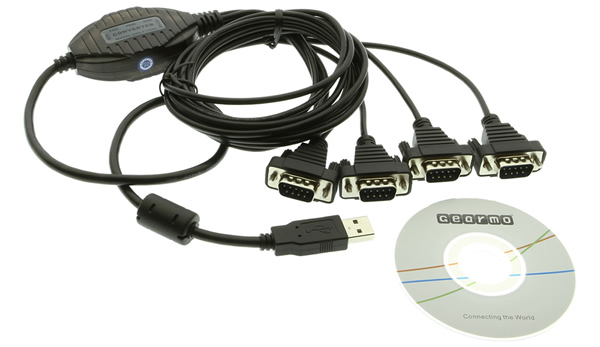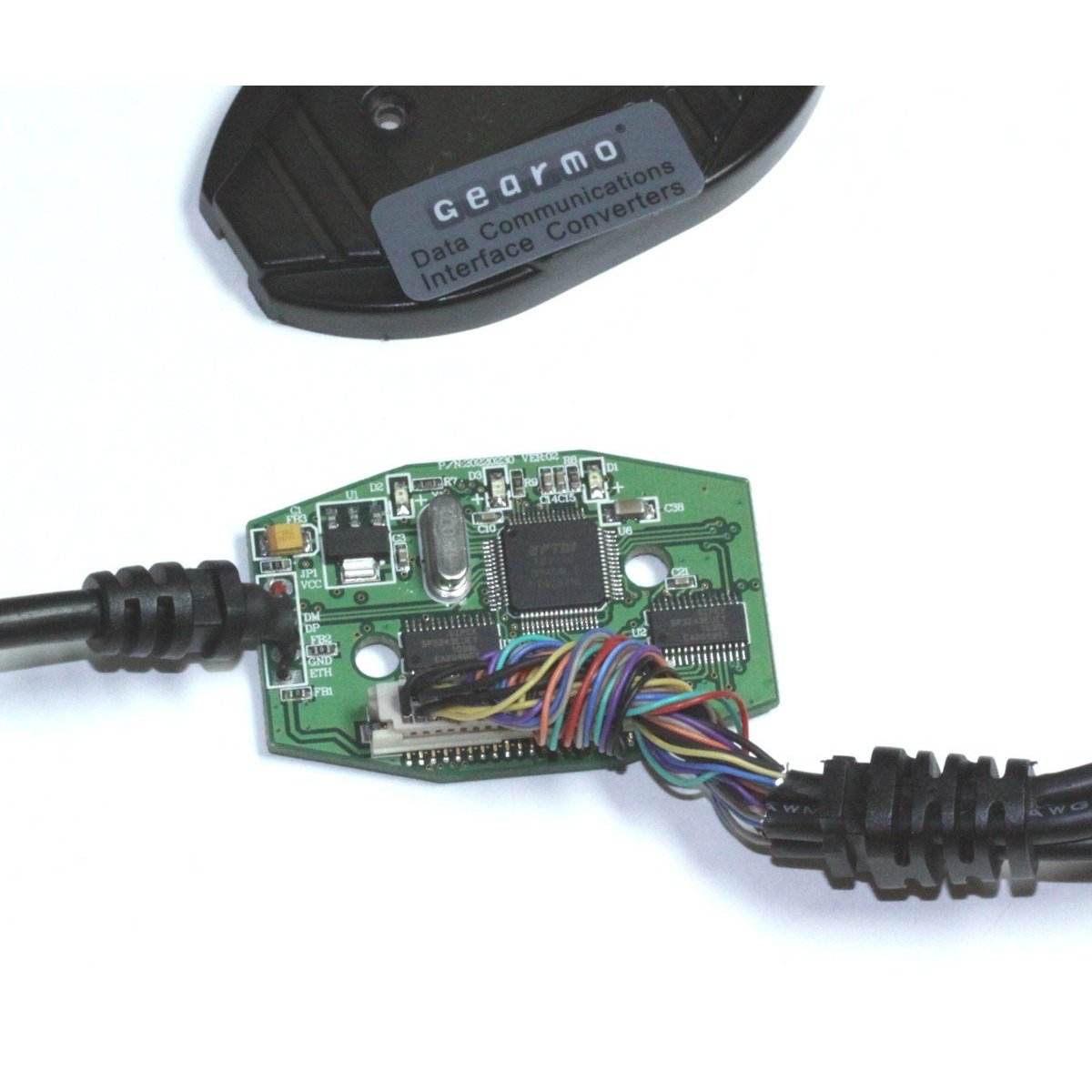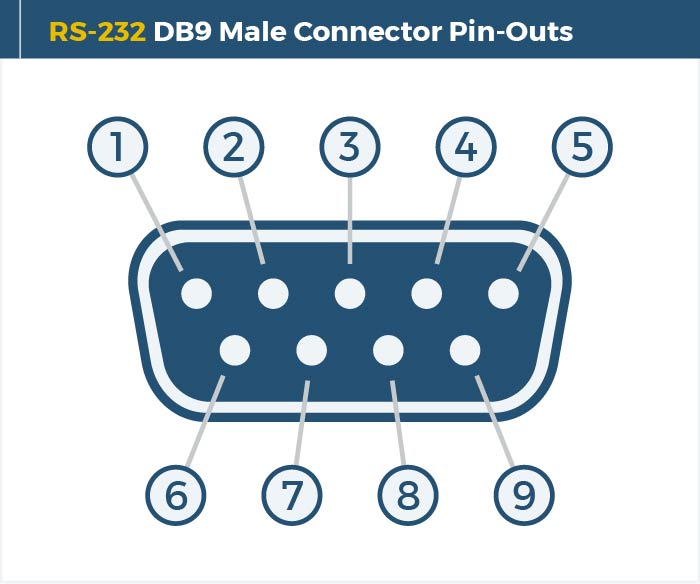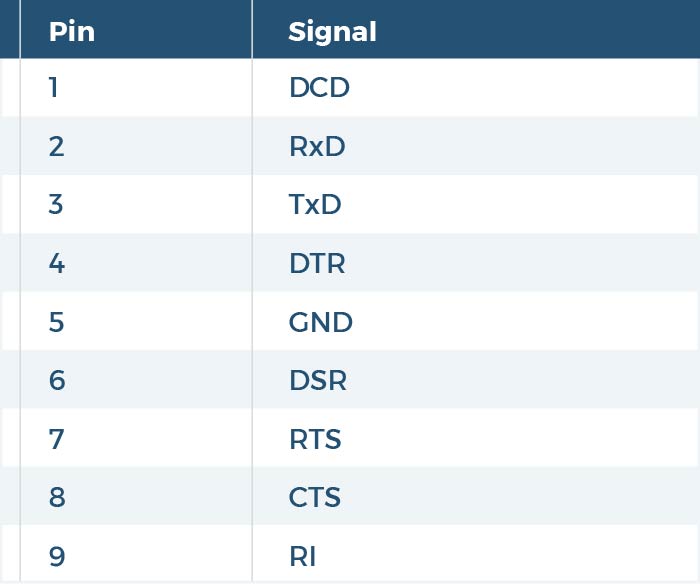Features:
USB Type-C PD Chargers
USB Type-A Chargers
Multi-Port USB Chargers
Integration-Ready Charging PCBAs
The USBG-4X2FTDI 4-Port USB DB-9 Serial Adapter is a rugged plastic USB to Serial adapter that allows you to add 4 RS-232 serial ports to your computer by connecting to a single available USB port. There are no IRQ & COM port conflicts during install.
The USBG-4X2FTDI 4-Port USB DB-9 Serial Adapter is designed to make serial port expansion as easy as possible with its Windows 11 support. Connecting to a USB port on your computer or USB hub, the USB Quad Serial Adapter instantly adds four RS-232 serial communication ports to your system. By taking advantage of the USB Bus, the 4-Port USB DB-9 Serial Adapter installation of serial ports and devices to your system painless with both Plug-and-Play and hot plug features.

Plugging the USB Quad Serial Adapter to the USB port, the adapter is automatically detected and installed. There are no IRQ & COM port conflicts, since the ports do not require any additional IRQ, DMA, memory as resources on the system. The USB Quad Serial Adapter is self-powered and does not require any external power adapters.

The 4-Port USB DB-9 Serial Adapter provides instant connectivity with modems, ISDN TAs, PDAs, handheld & pocket PCs, digital cameras, POS, serial printers. It is suitable for remote access, retail and industrial applications, data collection and other applications requiring high speed RS-232 serial communication ports.
Additional Features:
OS Support:
| Compliance |
| ||||||||||||||||||
|---|---|---|---|---|---|---|---|---|---|---|---|---|---|---|---|---|---|---|---|
| Physical Characteristics |
| ||||||||||||||||||
| Serial Attributes |
| ||||||||||||||||||
| Software |
| ||||||||||||||||||
| Environmental |
| ||||||||||||||||||
| Product Information |
| ||||||||||||||||||
| Hardware |
| ||||||||||||||||||
| Other Data |
|


The 4-Port USB DB-9 Serial Adapter has certain accessories that work with it. These accessories are what you can order if needed.
Model# 9DBMF5FT
$2.99In stock
View frequently asked product questions below. For all serial troubleshooting, visit this page.
Still need help? Reach out!
Test your components by:
When testing cables:
When testing serial ports and devices:
Note: You are required to restart your computer after disabling the Driver Signature Enforcement. Save all open work on your computer.
Disable driver signature enforcement:
When your system restarts:
When your computer restarts, Driver Signature Enforcement will be disabled and you can install the drivers.
Note: You are required to restart your computer after disabling the Driver Signature Enforcement. Save all open work on your computer.
Disable Driver Signature Enforcement:
After your computer restarts:
When your computer restarts, Driver Signature Enforcement will be disabled and you can install the drivers.
Once the driver/software is installed, follow these steps to allow the software:
Dan Zeitlin “Radio Addict” –
I installed this cable on a machine running XP Pro/SP3. I did a Windows Update prior to the installation. I let the OS find the driver on the provided CD ROM, rebooted, and the new COM ports were there. I redefined the ports using the Hardware Manager and the designations have “stuck” so far after about a dozen re-boots.
FWIW, I tried the cable with CTWin, Logger32, and N1MM. All worked fine, correctly communicating with two radios on two different COM ports and a Rotor-EZ equipped rotator on a third COM port. I have not tried it with WinKey as my LPT keying works fine (ergo, I do not use WinKey).
I experienced no RF susceptability problems on 160m-10m at 100W and 700W power power levels.
The “octopus” cables are conveniently long so that I do not need any extensions from the compuer which sits to the side of the radios.
The price of this quad converter is about half of another alternative that was recommended as being proven with Ham applications.
Aedbarnard –
Just works with the FTDI drivers. Tested on MacOS X 10.7 Lion and the four ports show up as /dev/tty.usbserial-FTUJPJ7ZA through /dev/tty.usbserial-FTUJPJ7ZD . Cables are quite long.
H. Stratton “cstulsa” –
Nice product, works just fine on my 64 bit Vista notebook, letting me use 4 serial devices simultaneously. I did have to force the drivers to use com port assignments that my computer says were already in use (though they really weren’t).
William Bowen “Engineer & Radio Collector” –
The USB “jungle” under my desk was becoming a nightmare & I was quickly running out of ports on my USB hub to connect my ham radio equipment to, so I went looking for a good multi-port USB~RS-232 adaptor. Between my 2 main ham transceivers, the packet TNC and the internal TNC I needed 4 RS-232 ports that did RTS/CTS handshake correctly (Kenwood radios are kinda picky in this regard {especially the TM-D710A in EchoLink sysop mode}, as is my TNC). I had been told by numerous fellow hams that USB~RS-232 adaptors that used the FTDI ICs where the only way to go, so I limited my search to these. I saw this item on Amazon & read a review from a fellow ham that had dealt with this same issue, and he praised this unit highly, so I decided to purchase it.
I’m VERY pleased with the results. I’ve hooked up the adaptor to my Toshiba laptop PC (my “shack computer”) and to the Kenwoods and everything works just like it is supposed to. There where no issues with the adaptor operating correctly with the radios running full power output (100W on the HF bands & 50W on 2M/70CM) – no “glitches” at all. One thing that had concerned me was possible interaction between the 4 ports when 2 or 3 of them are active (actually passing data) at the same time, which is the situation when running packet. However, no such interaction had been observed.
I would HIGHLY recommend this USB~RS-232 adaptor to any ham that is running multiple radios and/or aux. items like a TNC that wants reliable data transfer when you’ve got a bunch of RF floating around the shack on multiple bands. Gearmo makes a fine product in this item & I WILL personally recommend it to my ham friends.
NOTE: I would recommend that anyone that uses this product go to FTDI’s web site & download the ComPort Reassign utility – it makes Com Port assignment of the ports on this device much easier than using Device Manager in Windows.
jabit –
I was using a couple of individual usb-serial converters in my ham shack, and acquired two more pieces of equipment that needed serial ports. I ran across this item and decided to give it a try. I’m glad I did. Installation was a breeze on my Win 7 Pro 32-bit system, and the product functions extremely well, even in a strong RF environment. Each serial connector in the octopus cable is marked (A,B,C,D) and windows assigned Com8,Com9,Com10,Com11 respectively. These assignments remain across reboots, so there is no reconfiguring of application software. No muss, no fuss. This product uses the latest ultra-reliable FTDI-4232 chipset, and the drivers are Microsoft certified. As the title states, money well spent!